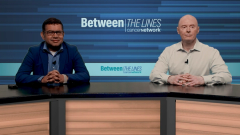
Later R/R MM Treatment Landscape and Unmet Needs
Panelists discuss the unmet need for effective therapies in early-relapse multiple myeloma, where patients have exhausted standard treatments but do not yet qualify for bispecific therapies or CAR T cells.
Episodes in this series

The discussion begins with an overview of current multiple myeloma treatment strategies, particularly focusing on patients with relapsed/refractory multiple myeloma R/R MM. In late-relapse settings after 4 lines of therapy, CAR T-cell therapy and bispecific antibodies targeting B-cell maturation antigen represent the most effective treatment options. However, significant unmet needs exist in earlier relapse stages where patients have exhausted standard quadruplet therapies but have not yet qualified for bispecific treatments.
The conversation highlights the challenge of treating patients in early-relapse phases who have progressed through multiple lines of therapy, including quadruplet regimens, lenalidomide-based treatments, and daratumumab combinations. Although CAR T-cell therapy has shown promise in first relapse and bispecific antibodies after 2 lines of therapy, not all patients are eligible for CAR T due to logistical constraints, patient preferences, or medical contraindications. This creates a critical treatment gap where highly effective bispecific therapies must be moved earlier in treatment sequences.
The experts emphasize that moving effective therapies like bispecific antibodies to earlier treatment lines could significantly benefit patients who cannot access CAR T-cell therapy. The discussion sets the stage for exploring talquetamab, a GPRC5D-targeted bispecific antibody, as a potential solution for addressing these unmet needs in multiple myeloma treatment paradigms.
Newsletter
Stay up to date on recent advances in the multidisciplinary approach to cancer.





































